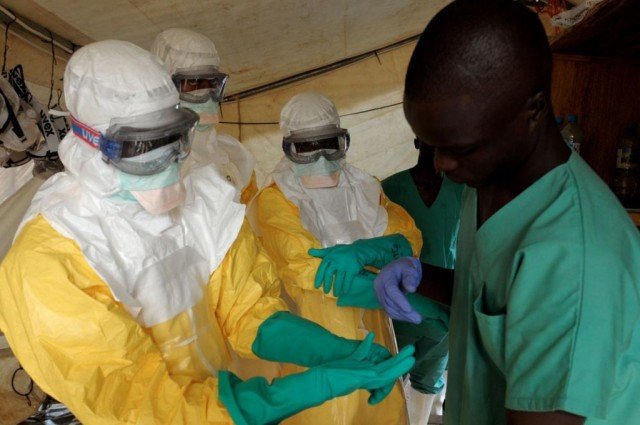WHO: Ebola outbreak is spreading faster than efforts to control it
World Health Organization head Margaret Chan has said the Ebola outbreak in West Africa is spreading faster than efforts to control it.
The WHO director general told a summit of regional leaders that failure to contain Ebola could be “catastrophic” in terms of lives lost.
She said the virus, which has claimed 729 lives in four West African countries since February, could be stopped if well managed.
Ebola kills up to 90% of those infected.
It spreads by contact with infected blood, bodily fluids, organs – or contaminated environments. Patients have a better chance of survival if they receive early treatment.
Initial flu-like symptoms can lead to external hemorrhaging from areas like eyes and gums, and internal bleeding which can lead to organ failure.
Dr. Margaret Chan was meeting the leaders of the worst-affected countries – Guinea, Liberia and Sierra Leone – to launch a new $100 million Ebola response plan.
The plan includes funding the deployment of hundreds more health care workers to affected countries.
“This meeting must mark a turning point in the outbreak response,” Margaret Chan said at the summit in Guinea’s capital, Conakry.
“Cases are occurring in rural areas which are difficult to access, but also in densely populated capital cities,” she said, explaining that the outbreak was the world’s deadliest and largest in terms of geographical areas.
“It is taking place in areas with fluid population movements over porous borders, and it has demonstrated its ability to spread via air travel, contrary to what has been seen in past outbreaks,” she said.
In her comments – also published on the WHO website – Dr. Margaret Chan said the virus was affecting a large number of doctors, nurses and other health care workers who have an essential role in curtailing the outbreak.
“To date, more than 60 health care workers have lost their lives in helping others. Some international staff are infected. These tragic infections and deaths significantly erode response capacity,” she said.
Dr. Margaret Chan said that while the situation in West Africa “must receive urgent priority for decisive action at national and international levels, experiences in Africa over nearly four decades tell us clearly that, when well managed, an Ebola outbreak can be stopped”.
She pointed out that medics are not fighting an airborne virus – transmission requires close contact with the bodily fluids of an infected person.
“Apart from this specific situation, the general public is not at high risk of infection by the Ebola virus,” Margaret Chan said.
“At the same time, it would be extremely unwise for national authorities and the international community to allow an Ebola virus to circulate widely and over a long period of time in human populations.”

